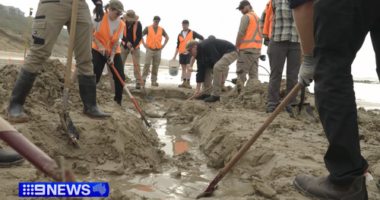Share this @internewscast.com
Young Australians are expressing concerns about the long-term burden of student loan repayments, even though the Labor party has proposed legislation to reduce HECS debts by 20 percent.
Education Minister Jason Clare tabled the bill on Wednesday as the re-elected Albanese government’s first act in parliament.
Clare said the legislation would cut the debt of three million Australians, with the average HECS debt of $27,600 being reduced by around $5500.

Katie mentioned several measures that could alleviate the financial strain on students with mounting HECS debts. Suggestions include reinstating government co-payments for voluntary repayments or allowing extra contributions to be tax-deductible.
A common complaint of the current HECS system is its yearly indexation schedule.
HECS payments are deducted from salaries during the year but are held by the ATO without being subtracted from the total debt until after indexation on June 1.
Katie said this process seemed particularly unfair and should be changed.
“They take your money out of our paycheck each pay cycle, but they don’t actually pay it off until they’ve added the indexation, which kind of feels a bit like a slap in the face.”
It’s a call echoed by Senator David Pocock, who told parliament he wanted to see the date of indexation altered.
“It is outrageous that people with HECS debts are being charged indexation, effectively interest, on money they’ve already repaid to the ATO,” he says.
Pocock said the federal government needed to “stop going for the headline” and “embrace hard reform” when came to higher education.
A wide-ranging review of the entire university system, called the Universities Accord, was commissioned by the federal government, and its findings were released in February, 2024.
Clare said the government had already taken steps to address some of the recommendations included in the report, including introducing payments for students completing practical work placements as part of their studies.
“There’s a lot of work to do to make our higher education system better and fairer,” Clare said, adding the next move would be to look at changing the funding system to be more “needs-based” and follow individual students, a reform which would benefit disadvantaged backgrounds and students from regional Australia.













